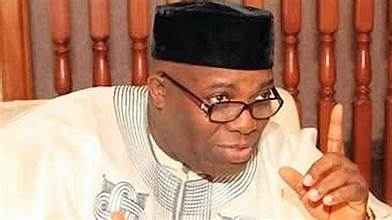Former presidential spokesperson Doyin Okupe has lauded President Bola Tinubu’s recent decision to eliminate “unnecessary ministries” during his cabinet reshuffle, noting that KPMG played a significant role in advising the removal of certain ministers.
In an interview held in Lagos on Thursday, Okupe, who previously served as the director-general of the Peter Obi Presidential Campaign Organization, expressed his approval of Tinubu’s mid-term cabinet adjustments.
“President Tinubu’s action to streamline his cabinet by cutting out superfluous ministries is a necessary step towards minimizing waste and enhancing government efficiency. This is a notable achievement,” Okupe stated.
“For the first time, the process of removing ministers has been based on solid criteria rather than arbitrary decisions or personal biases, thanks to an internal evaluation report focusing on key performance indicators.”
He added that KPMG’s involvement in assessing ministerial performance has been crucial in this process.
Okupe also emphasized that Nigerians now expect the president and his newly appointed cabinet members to tackle the pressing issues facing the nation effectively.
He expressed optimism regarding Tinubu’s ‘Renewed Hope Agenda,’ which aims to transform the country. “As I have previously mentioned, President Tinubu possesses the capability and leadership skills necessary to navigate Nigeria out of the economic challenges he encountered upon taking office in May 2023,” he remarked.
On Wednesday, President Tinubu dismissed five ministers and appointed seven new ones, while also reorganizing ministerial portfolios to enhance the administration’s ability to fulfill its commitments to the Nigerian populace.
The ministers who were relieved of their duties include Uju-Ken Ohanenye (Minister of Women Affairs), Lola Ade-John (Minister of Tourism), Tahir Mamman (Minister of Education), Abdullahi Gwarzo (Minister of State, Housing and Urban Development), and Jamila Bio Ibrahim (Minister of Youth Development).
New appointments included Nentawe Yilwatda as Minister of Humanitarian Affairs and Poverty Reduction, Muhammadu Dingyadi as Minister of Labour and Employment, Bianca Odumegu-Ojukwu as Minister of State for Foreign Affairs, Jumoke Oduwole as Minister of Industry, Trade and Investment, Idi Maiha as Minister of Livestock Development, Yusuf Ata as Minister of State for Housing and Urban Development, and Suwaiba Ahmad as Minister of State for Education.




